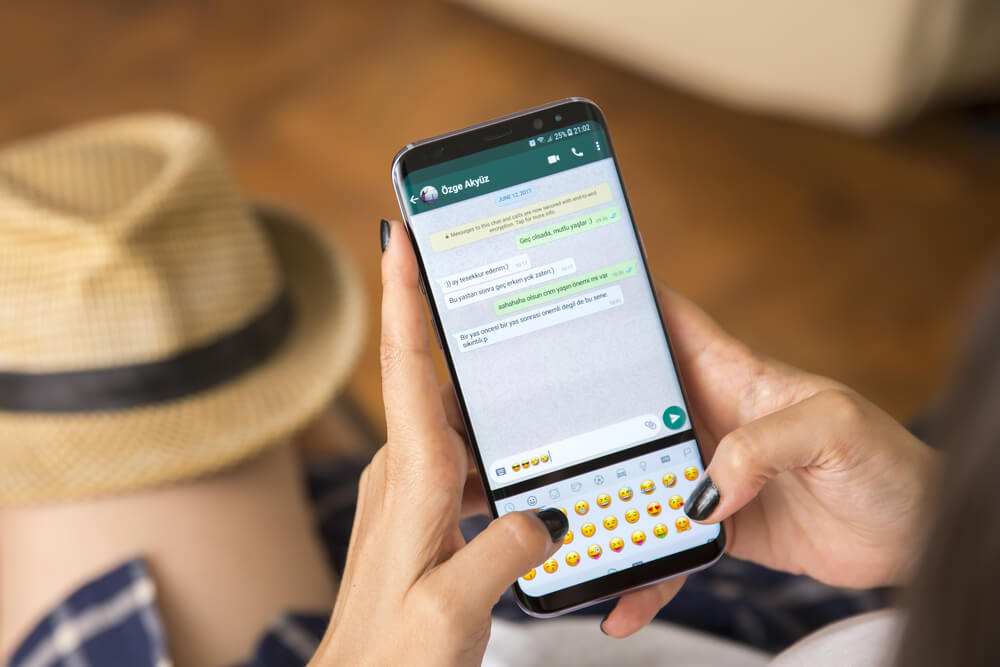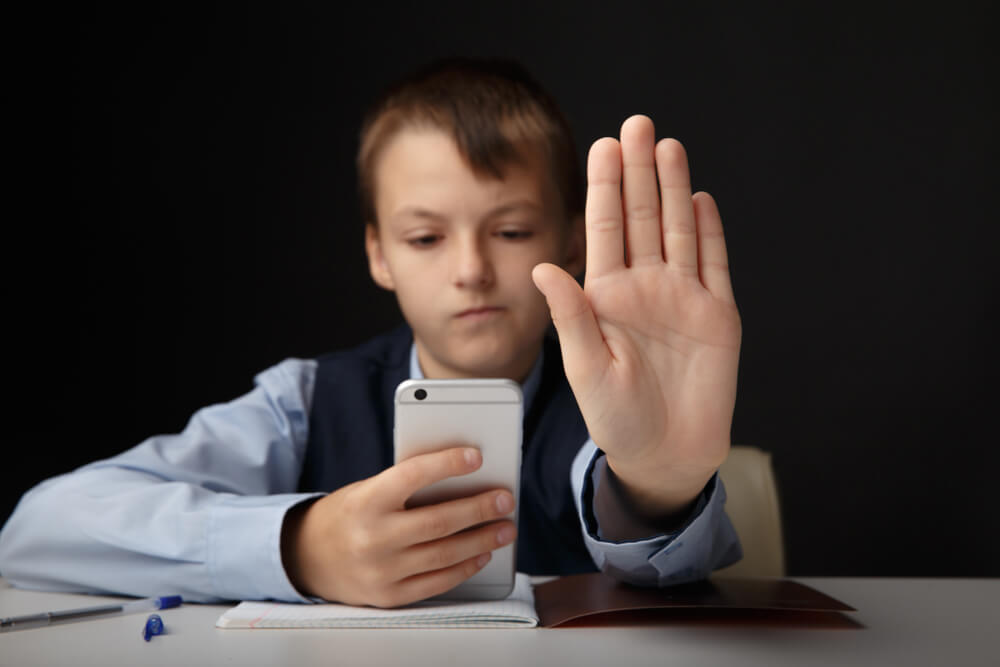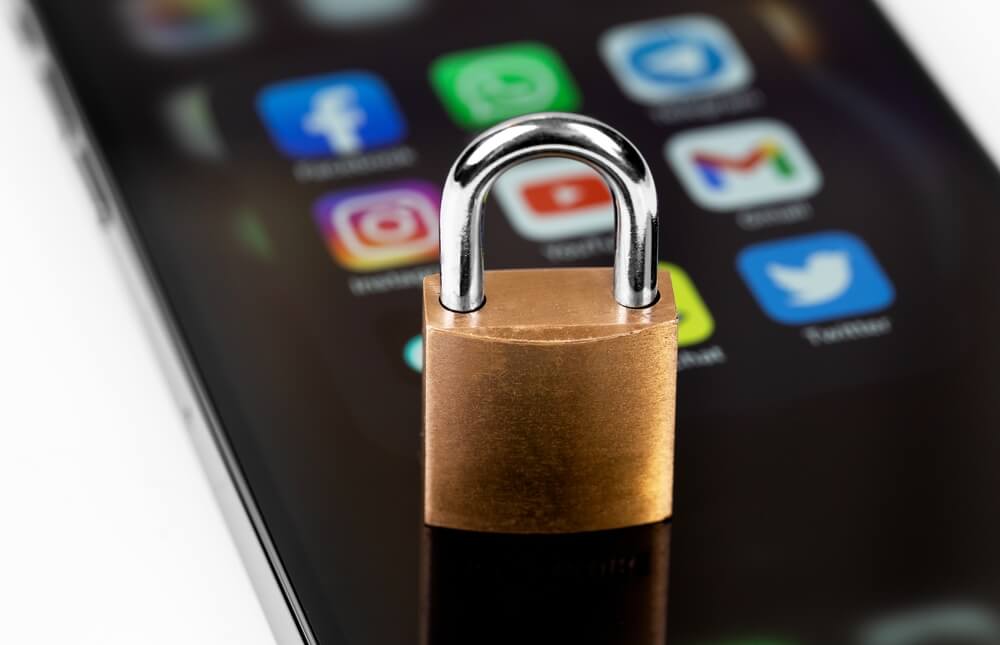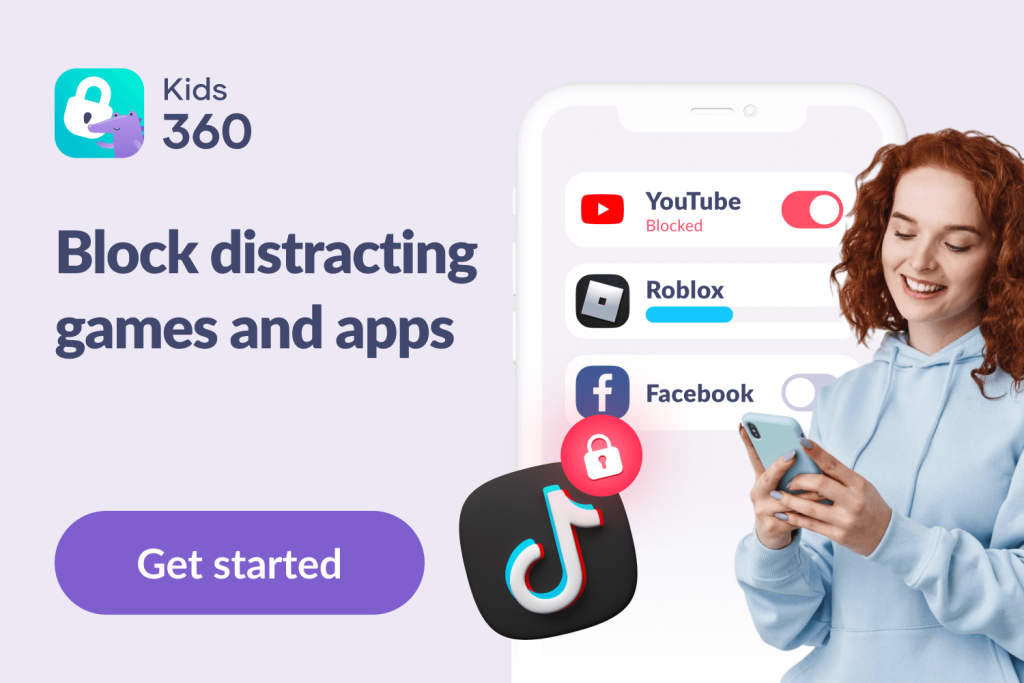WhatsApp for Kids: Exploring Safety Concerns and Tips for Parents

Is WhatsApp safe for kids? If your children are pestering you to download the app on their phone or tablet, this question is probably at the top of your mind. You’re likely wondering whether it’s a good idea — and if you do allow it, how to monitor their activity and keep them safe online.
WhatsApp presents lots of advantages as a communication app. It works without cell service and allows you to message people in other countries. And while it does have some privacy features built in, it also has some inherent risks, especially for kids and teens.
Just like any other online platform, WhatsApp is rife with explicit content, and while your child may be able to message friends, they may also be able to send and receive video messages with people they don’t even know. And that’s scary!
Is WhatsApp really safe for kids, and what are the potential risks of allowing your child to use it? Keep reading — we’ve got everything you need to know below.
Contents:
- What is WhatsApp?
- Why is WhatsApp Popular Among Kids?
- Is WhatsApp Safe for Kids?
- Does WhatsApp Have Age Restrictions as Part Of Their Security Features?
- Safety Tips for Parents
- Parental Control on WhatsApp
- Alternatives to WhatsApp
- FAQs
What is WhatsApp?

Prostock-studio/Shutterstock.com
WhatsApp is an online app that can be used to send messages and make phone calls. As well as text messages, users can send videos and images. WhatsApp is free to download and use, although your internet/phone provider may charge you if you exceed your data allowance.
The app can be a great way to stay connected with friends and family members and is very easy to use. WhatsApp is available cross-platform and can be used on iOS and Android devices as well as desktop computers.
Why is WhatsApp Popular Among Kids?
WhatsApp is one of the most popular messaging apps around the world, with around two billion active monthly users globally. As mentioned above, it’s incredibly easy to use and offers end-to-end encryption, meaning that all messages and calls exchanged over the platform are secure, and can only be viewed by the sender and the recipient—even WhatsApp itself can’t access them.
Kids love the group messaging feature, which is a fun way for children to stay in touch with family members and friends, and the ability to add GIFs and emojis to their messages. The ability to send videos and images, which can be taken in-app, and create fun, interactive elements like surveys for their friends to complete, also makes this platform a hit with children.
Is WhatsApp Safe for Kids?

YAKOBCHUK VIACHESLAV/Shutterstock.com
When considering ‘Is WhatsApp for kids?’ It’s important to be aware that the app is officially rated as being suitable for those aged sixteen and over. However, many parents allow their younger kids or teens to use the app—if you’re thinking about doing so, it’s vital to be aware of the risks. Knowing these dangers means you can make an informed decision and take the steps needed to keep your child as safe as possible online.
Contact from Strangers
The most obvious risk that comes with using Whatsapp is that your child could receive unwanted contact or contact from a stranger. This could be via a direct message, an ad, or an invitation to join a group.
Inappropriate Content
There is also the risk that kids could be exposed to inappropriate or upsetting content via messages, videos, or images sent via the WhatsApp platform. Due to the end-to-end encryption, messages are completely unmonitored by the platform itself, meaning that there are no ‘trigger’ words or types of content that would raise a red flag within the app.
Location Sharing Facility
WhatsApp features a live location-sharing facility that allows users to share where they are with others. When it comes to assessing whether or not the platform is safe, being aware of this feature is vital.

Prostock-studio/Shutterstock.com
Cyberbullying
Using any form of messaging or social media app can leave kids vulnerable to cyberbullying, and this includes WhatsApp. Plus, there’s also the chance that children will feel excluded if they’re left out of a group chat or removed from a group.
Disappearing Messages
WhatsApp has features such as ‘view once’ and disappearing messages, which could pose a potential risk: kids may end up oversharing due to these things. Further, inappropriate content could be sent with no way for a parent to exercise any form of monitoring or control due to the fact that this content vanishes.
Pressure to Reply Promptly
Another issue that can be caused by WhatsApp is the pressure kids may feel to reply to messages quickly. By default, the app is set to show when other users are online, when they were last active, and if they’ve read a message, all of which can mean that children feel stressed about staying on top of their messages and writing a response promptly. In turn, this can impact children’s ability to concentrate on their schoolwork or homework, or simply relax and unwind.
There is the facility to turn off the read receipt feature, so that users who have sent your child a message won’t be able to see if it’s been read—this may relieve some of the pressure your child or teen may otherwise feel.
Does WhatsApp Have Age Restrictions as Part Of Their Security Features?
WhatsApp does indeed have age restrictions as a security feature. However, in 2024, Meta lowered the minimum age for using WhatsApp from 16 to 13. This announcement made waves, and as a parent, it’s something you’ll want to pay close attention to.
The idea is to give younger users a safe way to stay connected while still aligning with parental oversight. And while some 13-year-olds may certainly be mature enough to handle the app, others may not. Therefore, it’s up to you, as a parent, to be vigilant about who your child is interacting with online (and in what ways).
One benefit of WhatsApp is in its encryption. Child protection expert Arda Gerkens said, “Encryption is key to protecting kids as well: predators hack accounts searching for images.” So while this does add a layer of safety, it’s also wise to encourage your child to avoid sending sensitive images (or ideally, any images of themselves at all) through the app.
Safety Tips for Parents

Prostock-studio/Shutterstock.com
If you decide to allow your child to use WhatsApp, there are several important things you can do to ensure they enjoy a safe, healthy online experience.
Change the WhatsApp Privacy Settings
To help your kid stay safe while using WhatsApp, use the privacy control settings (or show your older child how to use them). The default setting allows everyone to view a user’s profile photo, status, and about details. However, changing this setting to ‘My Contacts’ means that only people from their contacts list will be able to see this information.
To prevent your child from being added to a group by an individual they don’t know, in the settings section, choose ‘My Contacts Except’ and then select all their contacts using the tick icon. This means that any user will need to send your child an invitation first before adding them to a group.
Use the Safety Features
To help keep your child safer on WhatsApp, it’s important to make them aware of the app’s safety features, which allow them to, for example, block or report users who send inappropriate, offensive, or upsetting messages or other content.

Prostock-studio/Shutterstock.com
Disable the Location Sharing Feature
Key to keeping your child or teen safe on WhatsApp is ensuring that the app’s location-sharing feature is disabled. To do this, simply head into their device’s settings section and turn off the location services for WhatsApp. You may want to check your kid’s device regularly to make sure that that feature hasn’t been re-enabled.
Talk About How to Use WhatsApp Safely
Talking with your child about the importance of staying safe online —and ways to do so—is one of the most crucial things you can do to keep your kid secure. When they’re not aware of the dangers, it can be easy for kids to stray into hazardous situations or overshare without realizing the risks inherent in doing so.
Aim to foster open and honest conversation around online use and safety at home, and teach your kids about what is and isn’t ok to share on WhatsApp. Let them know that if anything at all happens on the platform that makes them uncomfortable in any way, it’s important to share what’s happened with yourself or another trusted adult.
according to Tara Hopkins, Meta’s Global Director for Public Policy, “It’s important to start having these conversations early—I really encourage parents to start having these conversations well before their child even has their first phone. I also try to put myself in their shoes. I remember the difficult conversations I had with my parents growing up, so listening to them and what they want is really important.”
Parental Control on WhatsApp
While there are no parental control settings in WhatsApp, there are other tools you can deploy to help keep your child safe. One of the most effective apps on the market right now to do this is Kids360.
Stay Safe with Kids360
The Kids360 app can be used to set daily screen limits for apps like WhatsApp and games, and allows you to monitor how much time your child is spending on various apps and platforms. And if you decide, on consideration, that you’d rather your child not yet have access to WhatsApp at all? No problem, Kids360 can be used to totally block it.
The Kids360 app can be downloaded onto your child’s device and paired with a partner app on your smartphone.
Kids360 incorporates parental controls, allowing parents to set screen time limits, manage app usage, and monitor their child’s progress. With Kids360, children can have fun, learn, and explore the digital world in a secure and controlled environment.
Alternatives to WhatsApp
If WhatsApp isn’t quite ticking the box for your little ones, Kinzoo and Messenger Kids are two stellar alternatives designed with children in mind.
Kinzoo is like the kid-friendly clubhouse of messaging apps. Built specifically for children under 13, it prioritizes safety and simplicity. Parents act as gatekeepers, approving contacts before kids can chat. With no ads, no data mining, and no exposure to strangers, it’s a breath of fresh air in the digital space. Plus, kids can have fun sharing videos, messages, and even drawing pictures, all without tumbling into the tricky terrain of broader social media.
Messenger Kids, on the other hand, is backed by Meta but leans heavily on parental controls. Parents manage the contact list directly through their Facebook accounts, ensuring a safe circle of communication.
It’s colorful, intuitive, and loaded with kid-approved features like stickers, emojis, and video calling. Messenger Kids also allows parents to monitor chat activity and usage, giving peace of mind while kids stay connected with friends and family.
Both apps focus on maintaining age-appropriate environments while letting kids enjoy the perks of staying in touch.
Navigating parenthood in the era of social media and secret messaging apps is tricky, and figuring out whether and when to allow your child access to platforms such as WhatsApp can be difficult, especially when your kid tells you that all their friends are using them.
Trust your intuition: you will know what’s best for your child and what they’re ready for. If you do decide to allow your kids to access WhatsApp, make sure you’re fully familiar with the app yourself, and the features that can be enabled to keep your child as safe as possible. Used in conjunction with a parental control app such as Kids360, you can have the peace of mind that both you and your child have the tools to enjoy a safe and happy online experience.
FAQs
What are the risks of WhatsApp for kids?
While WhatsApp might seem like a fun way for kids to stay connected, there are some potential risks to consider. Individual chats may sometimes lead to exposure to inappropriate or hurtful messages, especially if a child ends up communicating with someone outside their trusted circle. The app also relies on a person’s phone contacts to build a contact list, which means kids could potentially interact with people they don’t know well.
What percentage of 12-year-olds have WhatsApp?
It’s tricky to pin down an exact percentage, but WhatsApp has a huge global user base, so it’s no surprise that some 12-year-olds are already jumping in, especially in regions where the app is popular for everyday communication.
Is it okay for a 12-year-old to have WhatsApp?
Technically speaking, no, since the minimum age set by WhatsApp is now 13. However, even if your pre-teen is eager to join the group chat scene early, it’s worth pausing to weigh the potential risks. The possibility of encountering inappropriate messages or hurtful messages or adding unknown phone contacts to their contact list should give parents a reason to think carefully. If you’re considering it, setting up account privacy limits and supervising their app usage can help strike a balance between connection and safety.
Cover image source: Julija Sulkovska/Shutterstock.com
Проверьте электронный ящик




















